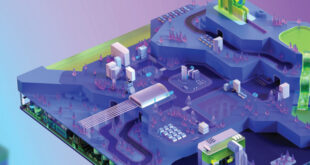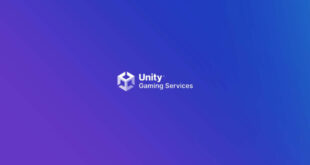Today Unity released the third itteration of its prolific and popular game engine. Keen to learn more about Unity 3, Develop caught up with Nicholas Francis, Unity Technologies’ chief creative officer.
Develop: How does it feel to have finally released Unity 3?
I am so happy to have it done. It’s been a long wait for people, and it’s been even longer for us. I just can’t wait to see how people react and what people do with it. It’s all about what new games will be made. The proof will be in the pudding.
Exactly. The previous versions of Unity have made quite and impact on the development industry. What do you think the impact of Unity 3 will be?
I think it’s a hard thing to predict. Looking back with retrospect on the previous versions, it looks like there was some grand master scheme, but we were really just about making the best possible tool that we could, and that anyone could. We just wanted to get that one out and make sure everybody could access it. That’s what we focused on.
I think the biggest difference with Unity 3 is that now we’ve got all the really high end technologies in there, so I think what we’ll see is a lot larger creations but the really experienced developers. That will be where the main shift will be, but it could also happen where those people want to start working on smaller scale projects.
Now there is a tool for those people, so they won’t feel limited in any way whatsoever. That could see a major change in the industry, but if I’m honest, I just don’t know.
Expanding the toolset and the range of developers using Unity will of course mean you need to make Unity 3 as flexible as its forerunners in terms of pricing and accessibility. What do you have in plan for Unity 3 in that regard?
That’s incredibly important to us at Unity, and one of the incredible advantages of Unity is that it brings together a huge ecosystem of developers who are cranking stuff out. Just because they are not paying us money doesn’t mean they aren’t important to us. When studios do good stuff with Unity, it gets picked up by people.
The cheap and free versions of Unity are really important to us, and move people forward onto the platform. A lot of those users move onto the paid versions, so it does work as a way to sell the game, but it is about more than that.
We have this huge group of small indies and individuals just using the free version, and having them is very important to us, and to the industry. I was speaking the other day to some larger studios using unity for console, and they were telling me how much easier it makes it for them to recruit new team members, because the free version means there are so many out there experienced with Unity. Unity is a great way to get into the industry, and helps get fresh blood in for studios.
Moving onto the features, what it is about Unity 3 that means it deserves attention as a completely new release? What distinguishes it from being just a Unity 2 update?
There’s several. One of them is the Beast light mapping, which has allowed us to get the industry’s best light mapping into the hands of basically anyone right now. There’s also a new Umbra Occlusion that they developed for Unity. These are giving Unity 3 users access to really, really expensive, high quality technology. That’s part of what makes this a full release.
We’ve also rebuilt the rendering engine completely, and we’re now seeing around 50 per cent faster rendering. There’s some major architectural changes going on behind the scenes. In a way it is all hidden. We’ve kept things simple and familiar, so it still feels like Unity in terms of using the tools, but there is so much code that has been re-written.
We’ve added a bunch of new tools, and we’ve also changed the skin so it’s a bit sexier, but everything will feel the same. And then there’s all the upgrades like snap to surface object placement stuff to speed things up, and integrated camera previews and all sorts. There’s a bunch of small features that will allow people to work faster and better.
And what about the challenges of developing Unity 3?
To be honest, with so many features coming in, just shipping it on time was the big challenge. The web player means that we can’t just change a lot of stuff with every new release. A lot of stuff depended on each other. For example, upgrading the mono runtime would mean changing the way the plug in works. There have been all kinds of integrations to handle as we’ve pulled stuff in to work together. It’s been hard work, but really worth it.

 MCV/DEVELOP News, events, research and jobs from the games industry
MCV/DEVELOP News, events, research and jobs from the games industry



